It’s currently illegal to use cannabis in New Zealand. However, the forthcoming cannabis referendum may change this. Under the current coalition government, the medicinal cannabis laws have already been altered, making it easier for patients to access cannabis products; and another law may soon be changed, decriminalising recreational cannabis use.
- Capital
- Wellington
- Population
- 5,032,000
- CBD Products
- Legal
- Recreational cannabis
- Illegal
- Medicinal cannabis
- Legal
- Cannabis laws in New Zealand
- Can you possess and use cannabis in New Zealand?
- Can you sell cannabis in New Zealand?
- Can you grow cannabis in New Zealand?
- Is CBD legal in New Zealand?
- Can cannabis seeds be sent to New Zealand?
- Medicinal cannabis in New Zealand
- Industrial hemp in New Zealand
- Political parties and cannabis
- Good to know
- Cannabis history
- Cultural attitudes
- New Zealand’s cannabis referendum
- Will it be legalised in the future?
Cannabis laws in New Zealand
Can you possess and use cannabis in New Zealand?
At present, it’s illegal to possess or use any controlled drugs in New Zealand, including cannabis, as stated in the Misuse of Drugs Act, 1975. Cannabis is listed as a Class B drug, which means that it’s regarded as presenting a “high risk of harm”. This means that, unlike a Class C drug, the Judge in court must impose a custodial sentence.
If caught using or possessing cannabis, the individual may be given a three-month prison sentence, a fine not exceeding $500, or both. In reality, the police force often turn a blind eye to its use, especially in small amounts.
The prison sentence may be waived if the individual can prove that they took possession of the cannabis to prevent someone else from committing an offence with it, or that they took it in order to pass it on to someone who was lawfully entitled to have it.
It looked like the law was set to change in New Zealand. In 2017, the government stated that they would be holding a cannabis referendum in 2020, to gather information about the public’s view on decriminalising or even legalising recreational cannabis use.
Sandra Murray, the campaign manager for #makeitlegal, commented in The Guardian, “We know from polls over a number of years that a majority of New Zealanders support cannabis law reform”.
However, the referendum was overshadowed by 2020’s COVID-19 pandemic, and polls indicated that public support of legalising cannabis was on the wane.
Andrew Geddis, a public law professor (University of Otago) commented: “Those wanting to see a yes vote had to convince a reasonable number of people that their previous prohibitionist views were mistaken. At the moment, it doesn’t look like they have been able to do so and time really is running out.”
It’s unclear whether Prime Minister Jacinda Ardern’s admission about using cannabis in the past will work for or against her. Unfortunately, the proposed Cannabis Legalisation and Control Bill, was defeated with a 50.7% majority.
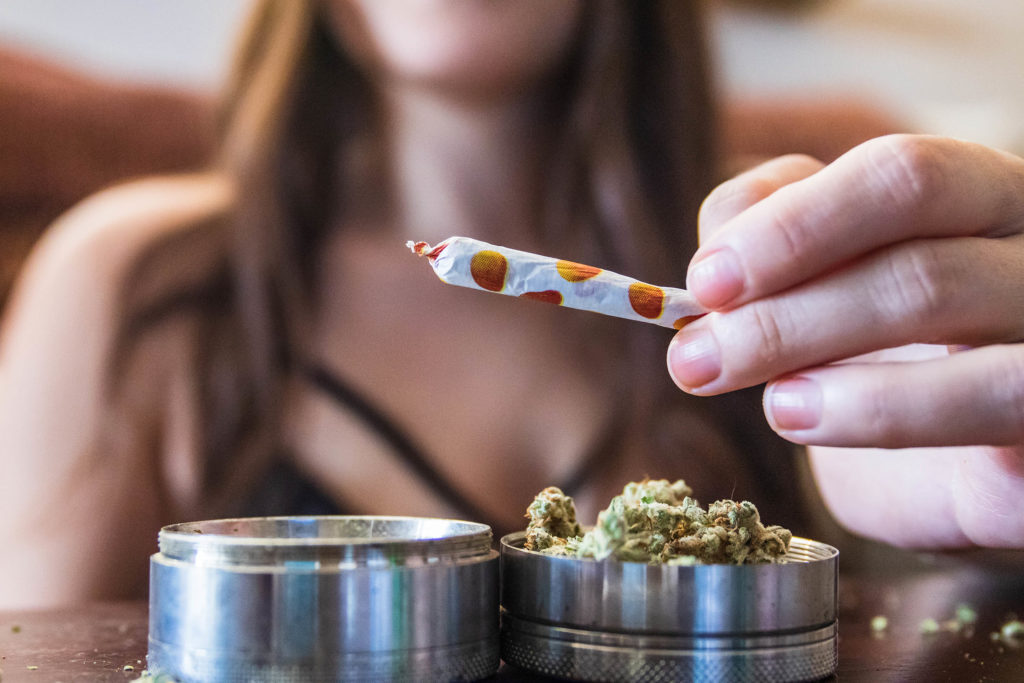
Can you sell cannabis in New Zealand?
Selling and supplying cannabis is also illegal in New Zealand. In the Misuse of Drugs Act, it’s not differentiated from possessing or using; which means the same penalties apply.
However, cannabis trafficking, or large-scale selling or supply, is regarded as a far more serious offence. If caught exporting or importing the drug, the offender may receive up to seven years in prison.
Can you grow cannabis in New Zealand?
It’s illegal to cultivate ‘prohibited plants’ in New Zealand. If caught doing so, the offender could receive a prison sentence of up to seven years.
Despite this, cannabis is still grown in the country. The leading reasons for growing cannabis were for personal use and for sharing with others. Some grow it for medicinal reasons, as it’s currently difficult to obtain medicinal cannabis products on prescription. A researcher from Massey University found that 16% of New Zealand’s cannabis growers had come into contact with the police.
Is CBD legal in New Zealand?
Prior to 2018, CBD was available on prescription only. However, at the end of 2018, an amendment was passed, which altered its legal status. Now, CBD is no longer listed as a controlled drug, and can be purchased and used with a prescription, for up to three months. However, the levels of THC must not “exceed 2% of the total CBD THC and psychoactive related substances content in the product”.
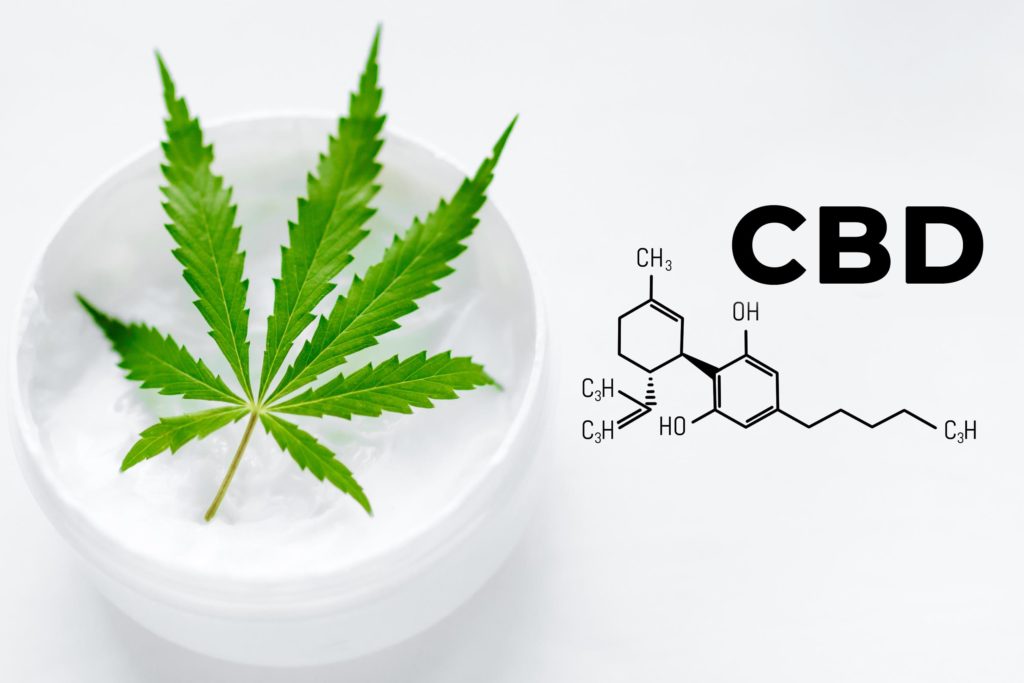
Can cannabis seeds be sent to New Zealand?
At present, it’s still illegal to send cannabis seeds into New Zealand via the post. 19,000 seeds were seized by border control officials in 2018 alone.
Medicinal cannabis in New Zealand
Prior to the end of 2018, medicinal cannabis products were available in New Zealand; but access to them was limited. Due to the country having no domestic manufacturing facilities, the products (like Sativex) were costly and hard to obtain. Some unapproved products such as Cesamet or Marinol could be approved on a case-by-case basis, but this hardly ever occurred.
In December 2018, substantial amendments were made to the law. These included:
- Better access for terminally ill patients (who can now obtain cannabis without needing a prescription).
- The removal of CBD from the list of controlled substances – making it freely available for patients who need it.
- New regulation-making power, establishing quality standards for medicinal cannabis products manufactured or imported into the country.
Health Minister David Clarke commented: “People nearing the end of their lives should not have to worry about being arrested or imprisoned for trying to manage their pain. This is compassionate and caring legislation that will make a real difference to people.”
Manu Caddie, CEO of Hikurangi Cannabis Company, was asked by Prohibition Partners about his thoughts on the future of the medicinal cannabis industry. He commented: “We expect 3-4 serious medicinal cannabis companies to be established and licenced in New Zealand over the next two years. We also expect some of the Canadian companies to partner with New Zealand companies.”
In 2019, the Ministry of Health approved new legislation, which was designed to make medicinal cannabis more accessible; through both domestic production and the relaxing of stringent prescription regulations.
The medicinal cannabis minimum quality standard, was also introduced to ensure the consistency, and quality of the products available.
A year later, the Medicinal Cannabis Scheme was finally put into action. It’s anticipated that this will improve availability for patients, and boost the medicinal cannabis industry as a whole.
The original scheme provided a transitional period for medicinal cannabis products imported into New Zealand before 1 April, 2020, to continue to be supplied until 1 October, 2020. An extension has been granted enabling medicinal products to be supplied without a product assessment until 30 September, 2021.
In October, 2021, New Zealand is set to host the prestigious MedCan medicinal cannabis summit. MedCan representatives commented: “the event has set out to build a solid foundation of scientific understanding for the advancement of the medicinal cannabis industry”
Zahra Champion, Executive Director, of BioTechNZ expresses their “goal is to ensure all MedCan attendees come away with a comprehensive understanding about all that lies ahead and how we can best maximise this exciting sector’s success”. She additionally remarks that “with over $100 million invested so far in New Zealand’s medicinal cannabis industry, 2021 is our year to shine”.
Industrial hemp in New Zealand
Hemp can be legally grown in New Zealand, as long as the farmer has a licence. This can be obtained from the government.
Hemp is listed as a controlled drug in the Misuse of Drugs Act, but its cultivation is permitted, as long as THC levels are ‘generally’ below 0.35%. However, the law clearly states that the hemp must not be advertised for “psychoactive” purposes or supplied to unauthorised persons. Only certain varieties can be grown, which are determined by the Director-General of Health.
A general licence to grow hemp lasts one year and costs $511.11. An additional research and breeding licence can also be obtained, which costs a further $153.33.
Industrial hemp cultivation is becoming more popular in the country. In 2018, the first Hemp Summit was held in Wellington, where visitors were able to learn more about the industry.
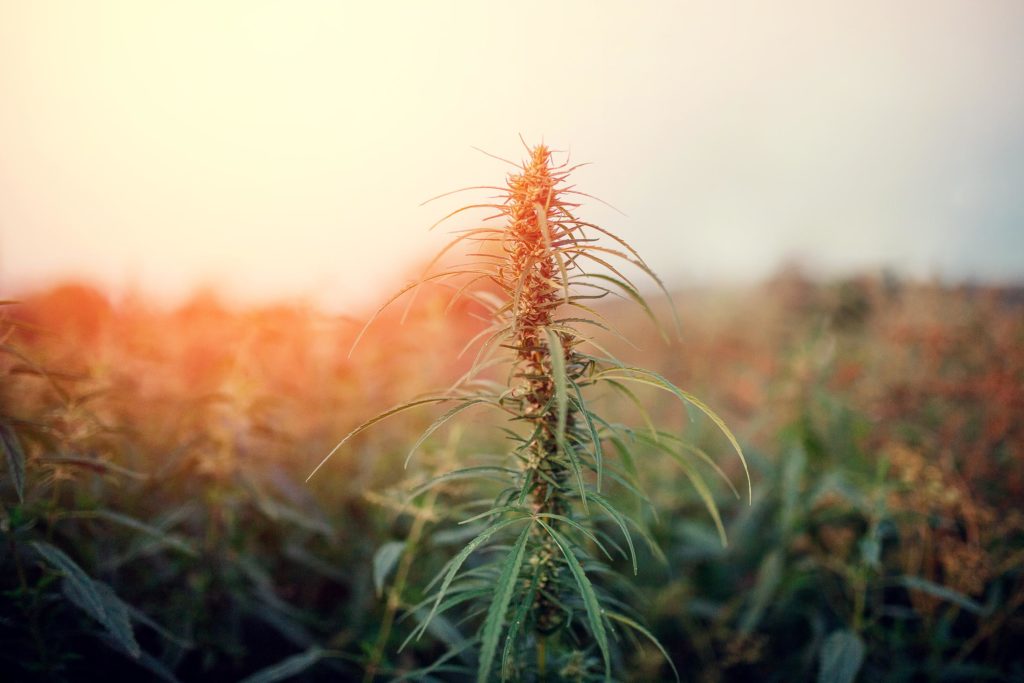
Political parties and cannabis
New Zealand’s coalition government (the Labour Party, Green Party and New Zealand First) passed a law in December 2018, which allowed terminally ill patients to use cannabis. They also stated that they would be holding a referendum in the future, to determine whether or not recreational cannabis use should be decriminalised. Their new laws also meant that medicinal cannabis products could be manufactured domestically, which would make them more accessible to patients.
Chloe Swarbrick, an MP for the Green Party, backed the plans, saying that it showed commitment to addressing the problem of drug addiction, rather than labelling it as a criminal activity.
However, not everyone supports the Labour Party’s views. Some parties, like the New Zealand National Party (the government’s centre-right opposition) are against the new law. Dr Shane Reti, the party’s health spokesman, referred to it as “lazy and dangerous”, as it will encourage people to start smoking it in public.
Simon Bridges (also the National Party) referred to the referendum as a ‘cynical’ move; and accused the government of trying to distract voters from other key issues. He also expressed concerns about normalising cannabis use.
Good to know
If you are travelling to New Zealand (or currently live there), you may be interested to know the following:
- Cannabis use is quite prevalent across the country. 11% of adults aged 15 and over stated that they’d used cannabis in the last year (2012/13 – most recent government report).
- Maori adults, and adults living in deprived areas, were statistically more likely to use cannabis.
- In the past, New Zealand was one of the few British colonies where hemp wasn’t extensively grown. This is because harakeke, which is nicknames “New Zealand hemp” grew widely there, which could be used to make rope and other fibres.
Cannabis history
Prior to the arrival of the Europeans, New Zealand didn’t have much contact with cannabis. However, when the country was colonised by the British, drugs were introduced to the Maori people, usually as ‘pain killers’. Back then, there were no drug laws in place, so New Zealanders were able to freely consume them.
In 1927, the Dangerous Drugs Act was passed, which listed ‘Indian Hemp’ as a controlled substance. However, it was still used as a prescription medication at this time. When New Zealand signed the Single Convention on Narcotic Drugs in 1961, cannabis was banned entirely – a decision that was reinforced in the Narcotics Act of 1965.
In the ‘swinging sixties’, recreational use of cannabis increased, as younger people started to become more experimental with psychotropic drugs. To this day, its use remains prevalent. In fact, it’s the most widely used recreational drug after caffeine, alcohol and tobacco.
Cultural attitudes
Attitudes are largely positive towards cannabis. A poll carried out by the New Zealand Drug Foundation found that 67% of the country believed that the law should decriminalise personal possession of the drug. 87% supported its use for pain relief, and this figure rose to 89% for pain relief for the terminally ill.
However, only 38% believe that cannabis products should be sold in retail stores; which demonstrates that there is still some stigma associated with its use.
New Zealand’s cannabis referendum
At the time of her election, Prime Minister Jacinda Ardern committed to holding a ‘cannabis referendum’ by 2020. This referendum would give the public a chance to voice their opinions on decriminalising recreational cannabis use, among other things.
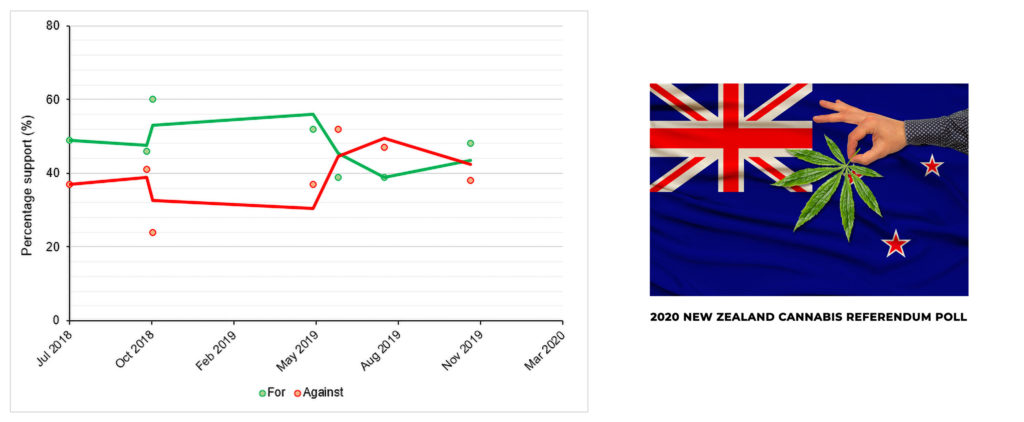
At the time of writing, the government hadn’t finalised exactly what they would be asking the public. Some experts have highlighted the importance of the phrasing of the questions, in order to get an accurate conveyance of what the public think about the matter. This will determine whether people will vote for decriminalisation or legalisation.
Labour, as the ruling party, had promised the Greens (who also make up the coalition) to hold the referendum, as part of the confidence and supply agreement between the two political parties. It’s believed that the voting will coincide with the general election in 2020.
Will it be legalised in the future?
There seems to be a very real possibility that New Zealand will join the likes of South Africa and Portugal, and go on to decriminalise cannabis for recreational use. Certainly, the government has taken progressive steps in terms of making medicinal cannabis more accessible, and encouraging the growth of the industrial hemp industry.
- Disclaimer:While every effort has been made to ensure the accuracy of this article, it is not intended to provide legal advice, as individual situations will differ and should be discussed with an expert and/or lawyer.






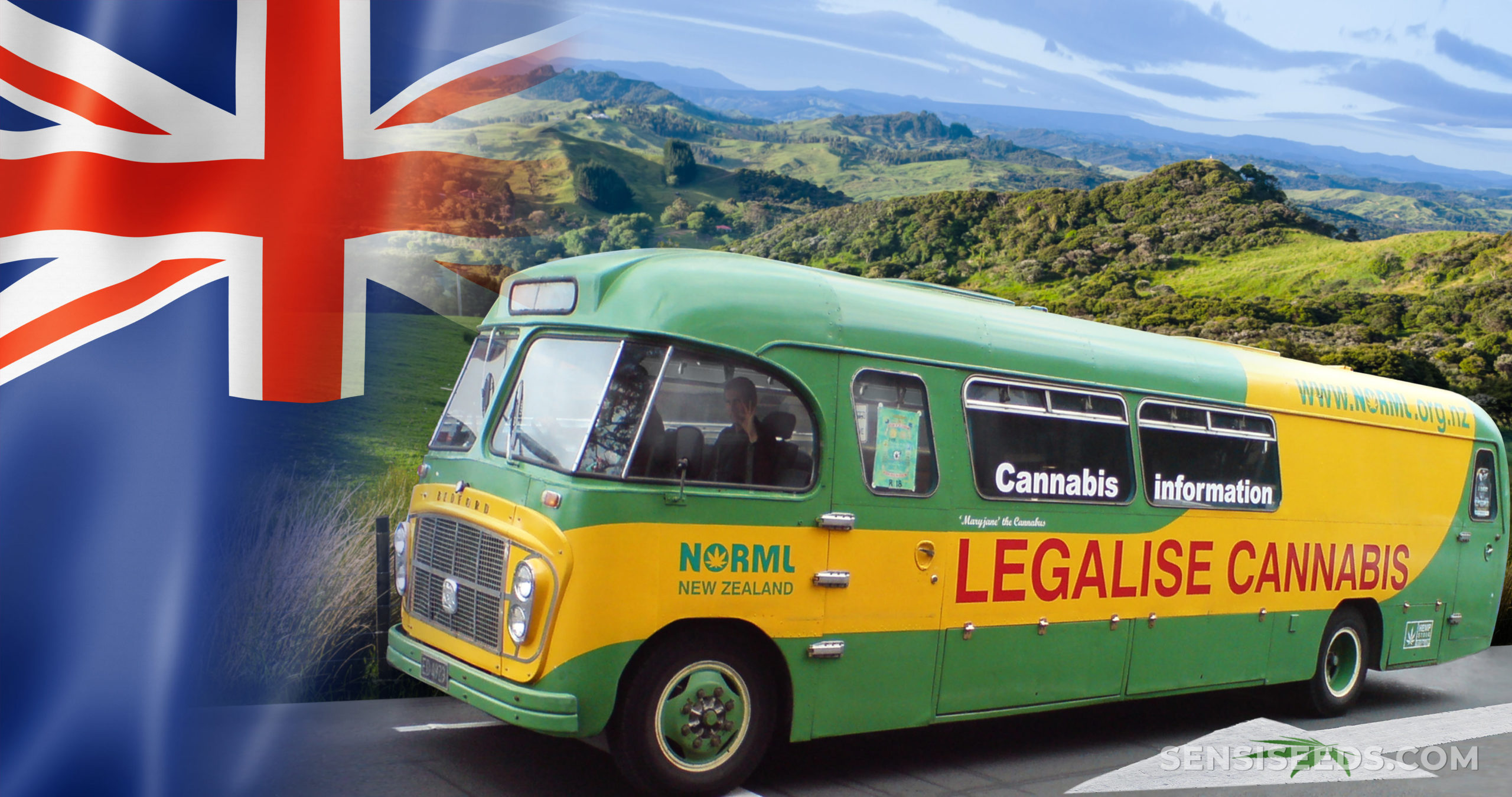




Thanks for your website, it is really great 🙂
I really love to travel too because it an amazing experience! I also did a website.
Another good article discussing the current state of medicinal cannabis in New Zealand:
http://www.wakeupnz.net/dunne-medicinal-cannabis-essentially-commercial-decision-pharmaceutical-companies/
Great article! I’m heading to NZ at the end of this month/beginning of February, and would love to interview anyone involved in the legalization efforts. Can anyone point me in the right direction to someone? I work in the advisory/consulting/finance space in the legal recreational and medical market in the US.
Thanks!
Simone
Agree with Ryan. John Key does not support any form of decriminalization or legalization, medical or otherwise. Our politicians seem to put their hand over their ears and yell “Lalalalalalala” when it comes to any kind of cannabis discussion.
Unfortunately Ryan is correct, in New Zealand cannabis is still very illegal and is posed to remain that way thanks to current government’s strong anti-drug stance. Public polls sit between 84% and 95% in favour of legalising medicinal cannabis, but we still have old politicians in place like Peter Dunne who is making it as difficult as possible for people to access medicinal cannabis and refuses to look at any evidence of benefit. As soon as we change this fool and the far right National government, we will have a much better chance of possible decriminalisation with a left wing government.
Beautiful country being destroyed by greed and profit. Totally agree with Ryan’s comment regarding our corruption, it’s certainly not advertised to the world but is there if you research. Fingers crossed change happens soon and we can keep up with the rest of the world!
Hi I am from New Zealand and this is not really a true representation of New Zealand or the social/political environment, most people are paid very little, where not clean and green in fact we have large low tech chemical agriculture expanding full steam, we can’t swim in 70% of rivers, deadly algae bloom’s in lakes and river’s from urea and cow shit run off. John Key dose not support any law change on Cannabis ”he’s a full Nazi Dictator”, people get longer prison terms for Cannabis than meth an A class drug even violent crimes are often treated as Trivial compared to growing Cannabis, in court no evidence has to be proved the police say what the charges are, you are told to plead guilty or they will give you a much longer sentence, might take 3 4 5 years to go to court, it’s a banana republic, highest suicide rate in the world!! , Please send the tourists but don’t expect to get any Cannabis as it’s not a common drug now mostly replaced with Meth and Synthetic THC/mixtures sprayed on any old leaves, Cannabis Growing has been pretty much shut down as an industry, sorry to say. there setting it up for an American invasion they already mussel ed out local grow shops buy the police putting them up on fake charges then forcing them to sell to an Australian Company owned by god know’s who, New Zealand is one of the most corrupt Country’s in the world we just do a good job of hiding it.